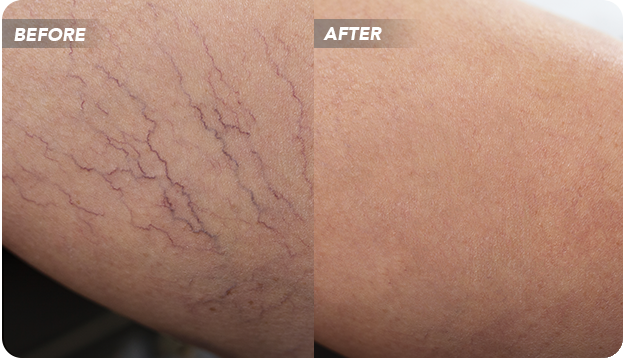What is the best varicose vein treatment in Paramus, NJ?
Are you looking for the best vein treatment in Paramus, NJ? The first thing you should know is that there are several potential varicose vein treatments for spider veins and varicose veins. During your consultation with the vein doctor in Paramus, NJ, they will diagnose the root cause of your spider vein and varicose vein.
You must find state-of-the-art vein centers in Paramus that use Duplex Ultrasound to diagnose the root cause of spider vein and varicose vein. The vein specialist will examine your varicose veins and spider veins, following which they’ll use vascular imaging to visualize the blood flow in your leg veins. As such, the medical director will determine if you have underlying venous insufficiency.

However, you must find experts in minimally invasive treatments and avoid vascular surgeons. The following are some of the benefits of minimally invasive varicose vein treatments over vascular surgery:
- Minimally invasive varicose vein treatments have a 97% success rate while vascular surgeries have a success rate of only 85%.
- Minimally invasive treatments are non-surgical and cause minimal pain or discomfort.

- Minimally invasive varicose vein treatments have a negligible risk of side effects.
- Minimally invasive varicose vein treatments conclude within an hour with no downtime.
- You can resume most of your daily activities immediately after the procedure.
Vein Treatment Clinic is currently one of the best vein centers in Paramus, NJ. Dr. Caroline Novak — our medical director — is one of the country’s finest board-certified vein doctors with an exceptional educational background and track record. If you have spider veins and varicose veins, please consult our vein doctor in Paramus, NJ. However, if you want more information on varicose vein treatments, please continue reading.
Radiofrequency Ablation
Radiofrequency ablation is a varicose vein treatment in which thermal energy is used to treat spider veins and varicose veins. The vein doctor inserts a catheter into the diseased saphenous vein through an incision on the surface of the skin. Once the catheter is lodged inside the saphenous vein, as seen through vascular imaging, the vein specialist activates it to generate heat energy. The catheter destroys the diseased vein’s walls, sending the accumulated blood to healthier veins. Radiofrequency ablation is a medically necessary varicose vein treatment, making it eligible for insurance coverage.
Endovenous Laser Ablation
Endovenous laser ablation is a varicose vein treatment in which laser energy is used to treat spider veins and varicose veins. The vein physician inserts an endovenous laser into the diseased saphenous vein through an incision on the surface of the skin. Once the laser fiber is lodged inside the diseased vein, as seen through vascular imaging, the vein doctor activates it to generate laser energy. The heat from the laser energy collapses the affected vein’s walls. The accumulated blood reroutes to healthier veins, restoring smooth blood circulation to the heart. Endovenous laser ablation causes more post-procedural discomfort than radiofrequency ablation. However, endovenous laser ablation is also eligible for insurance because it’s medically necessary.
VenaSeal
VenaSeal is one of the latest minimally invasive varicose vein treatments in which medical adhesives or vein glue are used to treat vein disease. The vein doctor injects a medical adhesive into the saphenous vein’s walls. The vein glue seals the diseased vein, turning it into scar tissue. The accumulated blood flows to healthier veins, and the diseased vein eventually gets absorbed by the body. VenaSeal causes no pain, but it’s not approved for insurance because it has only recently won FDA approval.
Ambulatory Phlebectomy
Ambulatory Phlebectomy is a minimally invasive varicose vein treatment for superficial varicose veins left on the surface of the skin after the primary vein treatment. The vein physician creates incisions on the surface of the skin and physically removes varicose veins. However, since the primary vein disease is already treated, ambulatory phlebectomy isn’t deemed medically necessary. As such, ambulatory phlebectomy doesn’t get insurance coverage.
Sclerotherapy
Sclerotherapy is the best minimally invasive treatment for spider veins, i.e., the dense cluster of blood vessels on the surface of the skin. The vein specialists inject a medicine called sclerosant into the spider veins to fuse their vein walls. The spider veins harden into scar tissues that eventually get absorbed by the body, fading away from the skin. Sclerotherapy isn’t eligible for insurance coverage because it’s not medically necessary. However, please discuss the possibility of including sclerotherapy in your primary varicose vein treatment with your vein doctor.
Consult state-of-the-art vein centers today.
Vein Treatment Clinic is the best state-of-the-art vein center in Paramus, NJ. Our medical director/ vein doctor, Dr. Caroline Novak, happens to be one of the country’s foremost experts on vein treatments, having successfully conducted hundreds of minimally invasive treatments for spider veins and varicose veins. Furthermore, our Paramus vein center is highly accessible, located just off the Garden State Parkway and close to the Garden State Plaza in Paramus, NJ. For more information, please schedule an appointment with our state-of-the-art vein treatment center today.
To learn more about the different options for spider and varicose vein treatment, please visit https://www.veintreatmentclinic.com/vein-treatment/. Our accredited vein centers offer all of the latest technology, and our accomplished and compassionate vein experts will create a custom treatment plan tailored to your individual needs. We have locations in New York, Long Island, New Jersey, California, and Texas.








